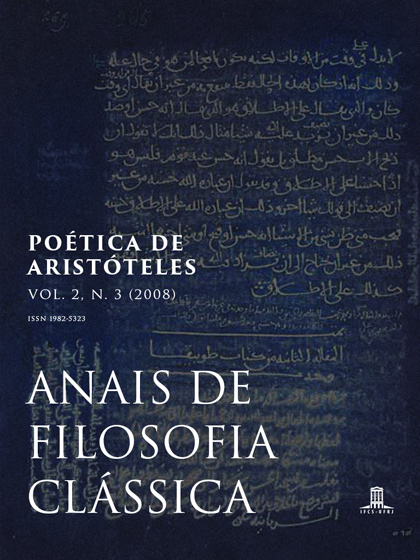A hamartía aristotélica e a tragédia grega
DOI:
https://doi.org/10.47661/afcl.v2i3.17041Keywords:
Hamartia. tragédia. erro. Aristóteles. Poética.Abstract
Resumo:
Este trabalho se detém mais precisamente no capítulo 13 da Poética, quando Aristóteles trata da queda do herói trágico da fortuna para o infortúnio, por causa de uma grande hamartía. De início, considero importante compreender o significado de hamartía para Aristóteles, o que vem a ser esse "erro" que não decorre nem da maldade (kakía), nem da perversidade (mokhthería) da personagem. Em seguida, pretendo mostrar até que ponto o que Aristóteles afirma pode ser encontrado nas tragédias gregas.
Palavras-chave: Hamartia. tragédia. erro. Aristóteles. Poética.
Abstract:
The subject of this paper is chapter 13 of the Poetics, where Aristotle deals with the fall of the tragic hero from fortune to misfortune caused by a fault. First, we think it is important to understand the meaning of hamartía, a fault which does not come through any real badness (kakía) or wickedness (mokhthería) of the character, but because of some mistake. Secondly, we present the repercussion of Aristotle's ideas in greek tragedy.
Keywords: Hamartia. tragedy. fault. Aristotle. Poetics.


